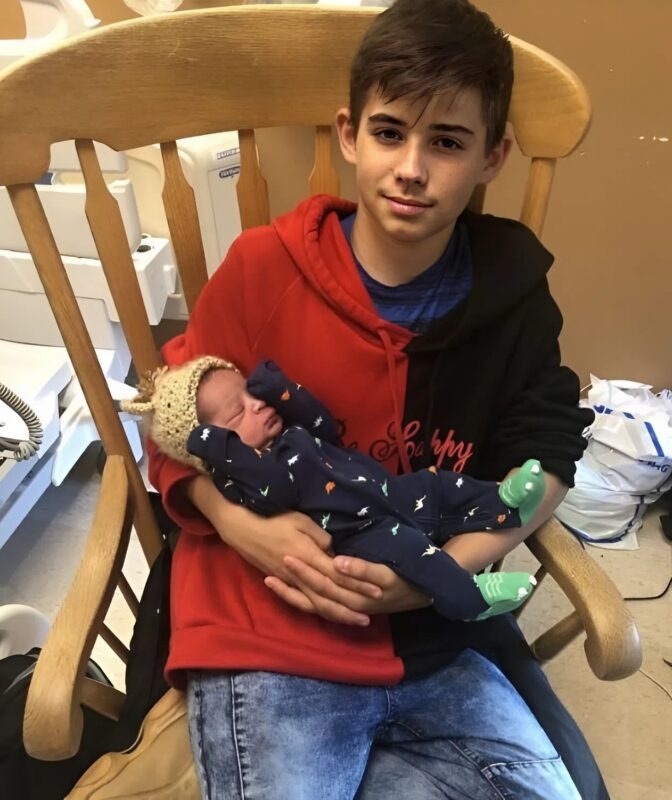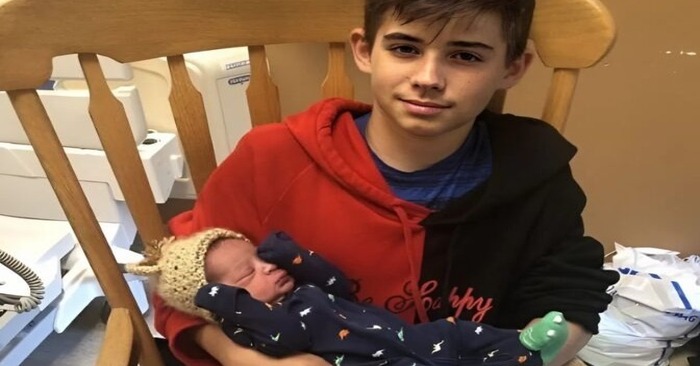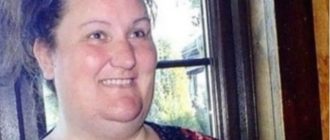“My teenage son became a dad overnight… but that’s not what haunts me.” 👶💔 The shock wasn’t the baby—it was what he said next. At 15, he chose to stay when everyone else walked away. But behind his bravery was a truth I never saw coming… and a wound I didn’t know he still carried. The full story is in the article below 👇
When Zach texted me during school hours—“Can you pick me up? It’s serious”—I had no idea I was about to step into a completely different chapter of our lives.
He slid into the car without a word, his hands trembling, hoodie half-zipped, eyes avoiding mine. I tried to lighten the mood. “What happened? Failed a test? Got into a fight?” But he barely whispered, “It’s not me… it’s her.”
That’s how I found out.
His girlfriend had given birth. And then, she walked out—left the hospital without signing a single form. And Zach, my 15-year-old son who still forgot to pack lunch, who stayed up late gaming and avoided shaving… he signed the papers.
That same evening, he looked me in the eye and said, “If nobody wants her… I do.”
At first, I thought he was trying to be brave, or worse—impulsive. But he wasn’t playing hero. He was serious. “I don’t know how to be a dad,” he told me, “but I can’t leave her. I don’t want her to grow up thinking no one wanted her.”
And that’s when I saw it—this wasn’t a teenager acting out. This was someone choosing responsibility, even while terrified.
We reached out to social services, who gently explained the obvious: Zach couldn’t do this on his own. But every suggestion of placing the baby elsewhere? He shook his head. “She’s mine. I want her.”
At first, I was convinced he just wanted to prove something. But no—he meant it. Every long night. Every diaper. Every lullaby. He took it all on.
One night, we sat in silence, staring at this tiny baby sleeping in a borrowed bassinet. And Zach said something that still echoes in me: “I just don’t want her to feel abandoned… like I did.”
I hadn’t realized he still carried that with him. His quietness. His long hours locked away with video games. It wasn’t laziness—it was loneliness.
“I’m here,” I said softly. “We’ll do this together.” But inside, I was scared out of my mind. He was still a child himself. I didn’t know if I could hold both of us up.
The first few months were chaos—late nights, doubt, tears. I saw Zach break down. “She deserves better,” he said once. “Better than me.”
But those words? That doubt? It was proof he was trying. He knew the weight of what he’d taken on.
We asked for help. Friends, family, real support systems. And slowly, it got better. He wasn’t perfect—but he was present. And that meant everything.
Then came a twist I didn’t expect—his girlfriend returned. Not to take over, but to show up. She wanted to share the responsibility. And together, awkwardly, imperfectly—they began to rebuild.
Zach was still young. Still figuring it out. But I started to see something shift. The boy who once lost track of time in front of a console now told bedtime stories. He hummed lullabies. He knew how to soothe his daughter’s cries before I even stood up.
And I realized—I was the one learning from him.
We raise our kids thinking we’ll show them how to grow. But sometimes, they’re the ones who show us what strength really looks like.
Zach taught me that being young doesn’t mean you can’t rise to the occasion. That love isn’t about age or readiness—it’s about the willingness to show up, again and again, even when it’s hard.
He reminded me that you don’t have to be perfect to be enough.
And somehow, in learning to be a father, my son became something else, too—someone I deeply admire.







